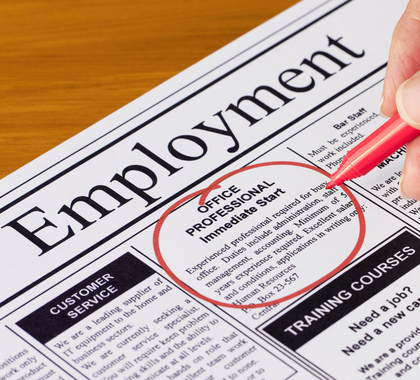The minimum wage in New York City, which rose to $15 an hour on January 1, 2019 as the latest in a series of increases under state law since 2015, is causing job losses in the city’s restaurant industry, data shows.
The $15 minimum wage currently applies to all New York City businesses with more than 10 employees. In 2020, it will apply to NYC workers in businesses with 10 or fewer workers.
The $15 minimum wage will be phased in across the state over the next few years under a 2016 law signed by Gov. Andrew Cuomo. If the $15 standard were in force statewide in 2020, it would cause the loss of 45,031 jobs, a January 2019 Employment Policies Institute study found. If a $15 minimum wage were required nationwide in 2020, the job losses would be 2 million, state the EPI.
Rising labor costs have led to job losses at full-service and fast-food restaurants in New York City, an Investor’s Business Daily editorial stated on February 20.
“By the end of last year, there were fewer restaurant workers in the city than in November 2016,” states IBD. “In just the last three months of last year, 4,000 workers lost jobs at full-service restaurants, Bureau of Labor Statistics data show,” IBD states.
Unskilled Workers Hit Hardest
Inexperienced and unskilled workers, which includes many food service workers, bear the brunt of the job-killing effect of minimum wages, says John Phelan, an economist with the Center of the American Experiment.
“[Economists] David Neumark and William Wascher reviewed all the evidence,” said Phelan. “They show that minimum wages do have a negative impact, and these impacts are disproportionately felt by less-skilled employees.”
Such employees receive less pay simply because they are less productive than others, says Phelan.
“All the minimum wage does is outlaw employing anybody whose productivity per hour is below whatever the minimum wage might be—say, $15 an hour,” Phelan said.
Survey Shows Cutbacks
Both full-service and fast-food restaurants have reduced the number of workers they employ as the mandated wage has risen, the New York City Hospitality Alliance reports.
More than a third of the city’s full-service restaurants eliminated jobs in 2018, and nearly half expect to cut jobs this year, according to the Hospitality Alliance survey conducted in November and December of 2018. Half of the city’s limited-service, or fast-food, restaurants surveyed reported cutting jobs in 2018, and more than half said they will eliminate positions in 2019.
More than three-fourths of the New York City restaurants surveyed cut worker hours in 2018 to offset that year’s wage hike, and three-fourths say they want to cut hours this year, notes the survey.
Piling on More Laws
The New York City Council is considering amendments to the city’s Administrative Code that would specifically apply to fast-food restaurants and make it more difficult for employers to fire workers or eliminate positions.
Fast-food employers would be prohibited from laying off employees without a “bona fide economic reason” such as “the full or partial closing of operations or technological organizational changes to the business resulting in the reduction in the volume of production, sales, or profit,” states Council Member Adrienne Adams’ local law bill No. 1396. The bill would also require layoffs to be conducted in reverse order of seniority, known as last in, first out.
Council Member Brad Lander’s local law bill No. 1415 would prohibit fast-food employers from terminating any employee without “just cause.”
Current labor market conditions render laws impeding layoffs unnecessary, says Thomas Hemphill, an economics professor at the University of Michigan-Flint and a policy advisor to The Heartland Institute, which publishes Budget & Tax News.
“With 4.0 percent national unemployment, the need for a bill to prohibit a fast-food employer in NYC from terminating or laying off an employee without a bona fide economic reason is absurd,” said Hemphill.
‘Ripe for Further Automation’
Rising labor costs created by minimum wage laws are spurring greater automation in the fast-food business, thus eliminating jobs permanently, says Hemphill.
“In the fast-food industry, we are already seeing ordering kiosks at Wendy’s and McDonald’s,” said Hemphill. “As labor costs rise, automation will allow tech-savvy customers to go into a limited-service restaurant … and exit with a limited interaction with employees. Other back-of-the-house operations, including food preparation, will also see further automation.”
New York City’s labor policies will speed the change, Hemphill says.
“In NYC, combine statutorily increasing minimum wages with ‘just cause’ and the elimination of ’employment at will,’ and one can foresee a fast food-business operating scenario ripe for further automation and fewer employees,” said Hemphill.
Sarah Quinlan ([email protected]) writes from New York City, New York.
Internet Info:
“The Impact of a $15 Minimum Wage,” Employment Policies Institute, January 2019:
https://heartland.org/publications-resources/publications/the-impact-of-a-15-minimum-wage
“Rising Labor Costs Survey,” conducted Nov-Dec 2018, New York City Hospitality Alliance, January 2019:
https://heartland.org/publications-resources/publications/new-york-city-hospitality-alliance-survey




